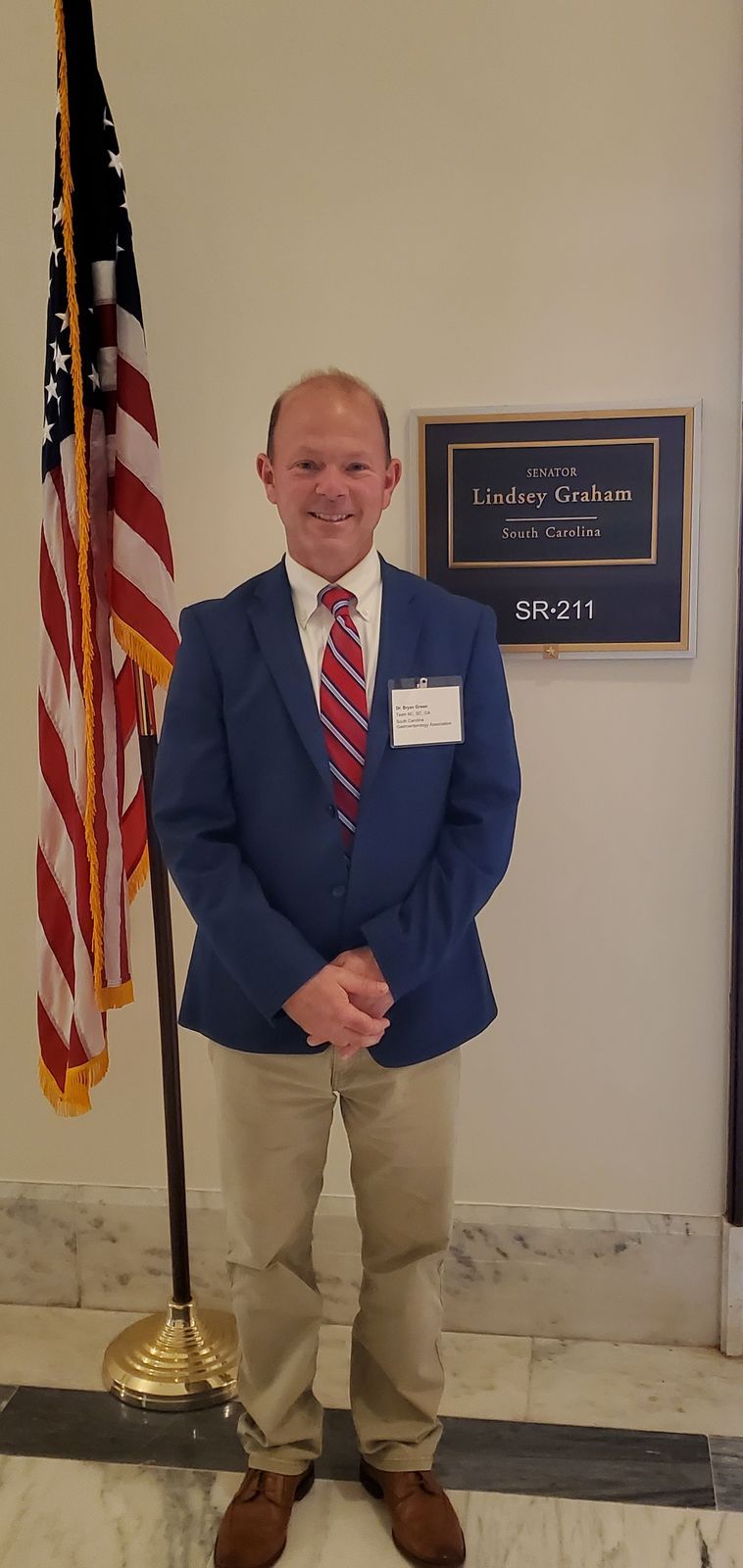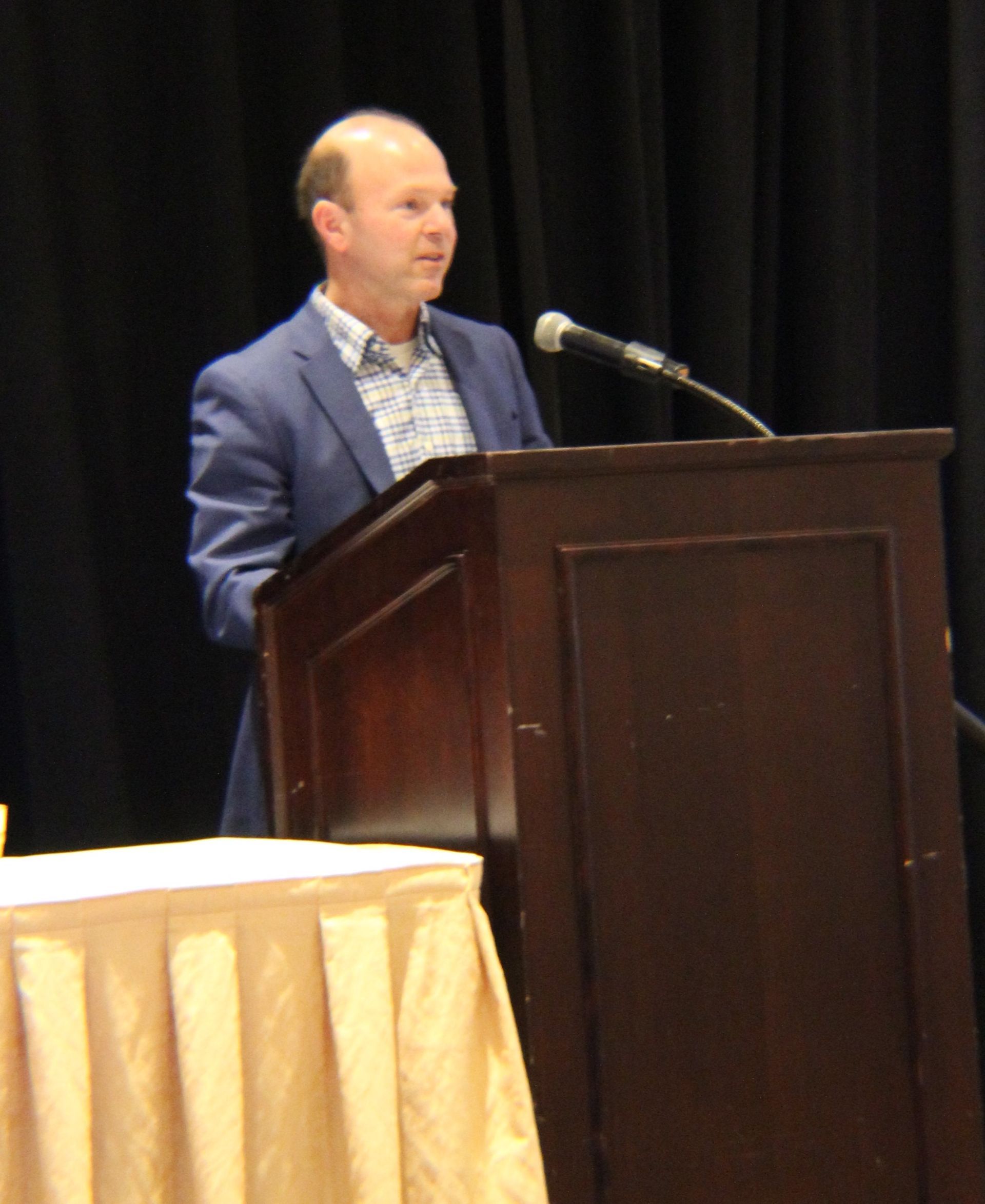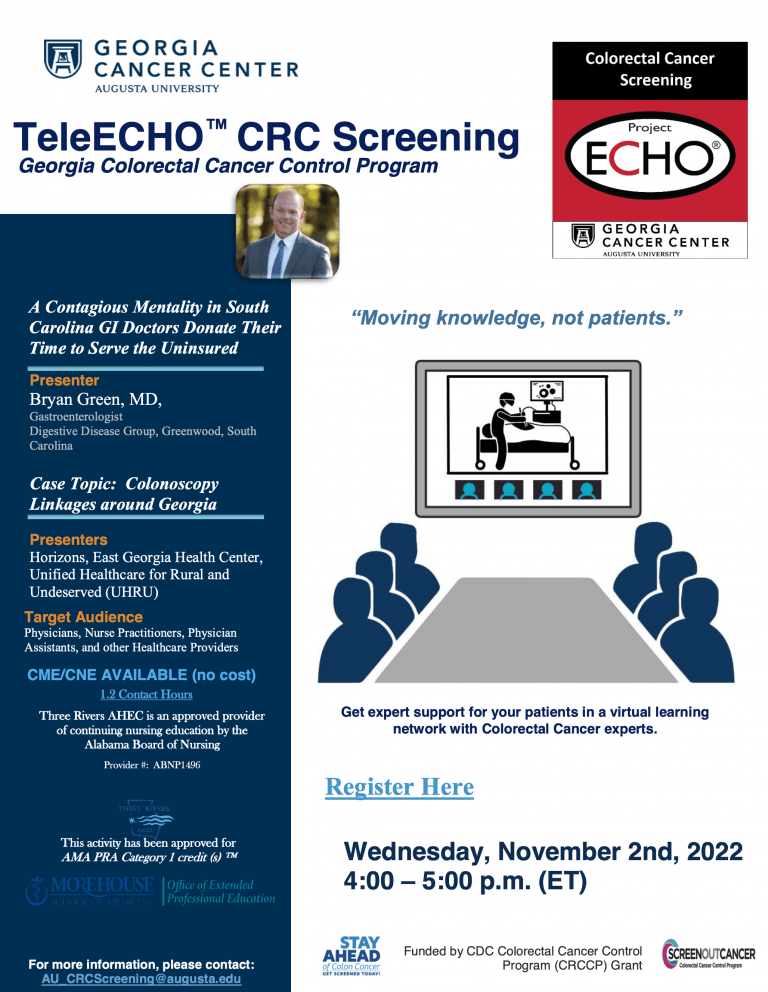Dr. Bryan Green traveled to Washington DC recently as the immediate past President of the Digestive Disease National Coalition (DDNC) for its March Legislative Advocacy Day. Dr. Green met with Legislators on Capitol Hill to advocate of passage of the Safe Step Act as well as the HELP Copays Act. The Safe Step Act would help reduce step therapy by which insurance companies require patients to try and fail a less effective medication prior to covering the more effective medication thus exposing patients to undue suffering. The HELP Copays Act would eliminate copay accumulator programs that are a tool used by health insurance plans to limit their own expenses by preventing copay assistance programs from counting towards a patient’s deductible. This shifts cost from the insurance company to patients.
The DDNC is a national advocacy organization for patients with digestive illnesses. In conjunction with its member organizations, DDNC seeks to raise awareness of digestive diseases in Congress and in the media. There are over 40 organizations within the DDNC including the American Gastroenterology Association, Celiac disease Foundation, Crohn’s and Colitis Foundation of America, Colon Cancer Alliance, and a number of state gastroenterology associations including the South Carolina Gastroenterology Association.











